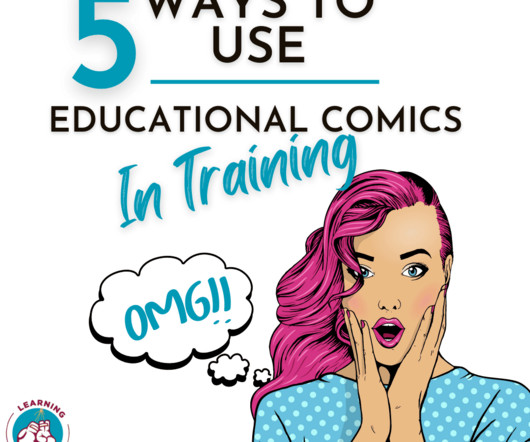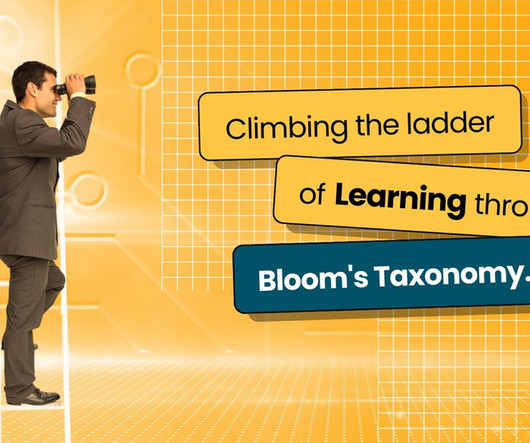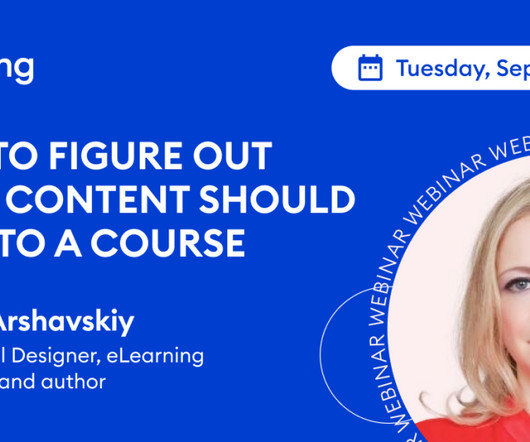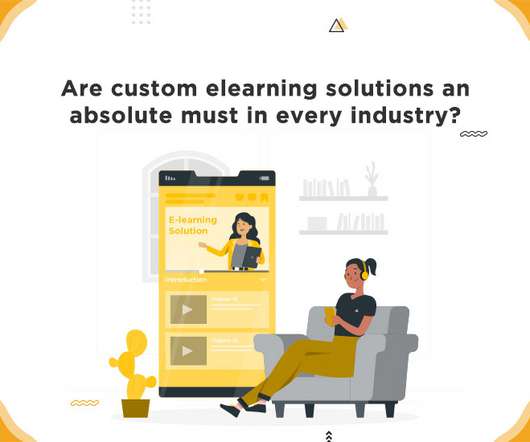Insights for L&D, Twine, Games: ID Links 3/8/22
Experiencing eLearning
MARCH 8, 2022
This post includes links on insights for L&D, Twine, game design, graphic design, and quality assurance for elearning. If we want to avoid doing slide presentations, we have to know what cognitive (and emotional) advantages these technologies have so we can leverage them for success. Games and branching scenarios.

















































Let's personalize your content